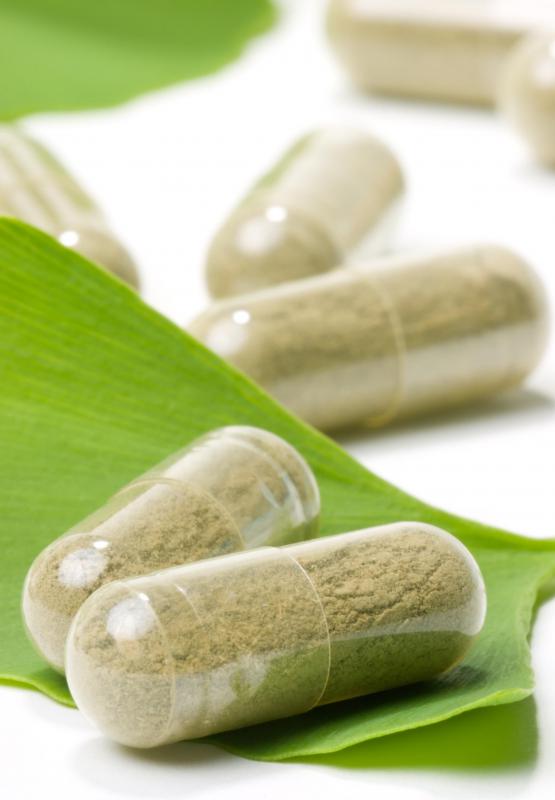At WiseGEEK, we're committed to delivering accurate, trustworthy information. Our expert-authored content is rigorously fact-checked and sourced from credible authorities. Discover how we uphold the highest standards in providing you with reliable knowledge.
How Do I Choose the Best Herbal Treatment for Neuropathy?
Choosing the best herbal treatment for neuropathy in an individual situation can be a time-consuming process, as each person responds differently to each type of supplement. Experimentation is often necessary in order to find the herb or combination of herbs that works best for a specific person. Some of the most popular supplements used for the herbal treatment for neuropathy include skullcap, alpha-lipoic acid, and cayenne pepper. Additional herbs that may be beneficial include ginkgo biloba, fish oil, and St. John's wort. Due to the potential side effects associated with herbal supplements or negative interactions with other medications, a doctor should be consulted before beginning herbal treatment for neuropathy.
Skullcap is frequently used as an herbal treatment for neuropathy. This herb is thought to relieve mild to moderate pain, combat insomnia, and improve the overall functioning of the nervous system. Side effects of skullcap may include abnormal heart rate, seizures, and liver damage. Alpha-lipoic acid is also commonly used to treat neuropathy and may be particularly beneficial for those who have diabetes. Those who are taking insulin should consult a doctor before using this supplement, as it may cause blood sugar levels to drop too low.

Cayenne pepper may be a helpful herbal treatment for neuropathy and can be taken internally or added to creams or ointments and used topically. When consumed, this herb may cause stomach pain or allergic reactions. The topical use of cayenne pepper can cause a painful burning sensation and may actually cause damage to the skin.
Gingko biloba and St. John's wort are thought to be beneficial to those who have been diagnosed with neuropathy. Studies have suggested that both of these herbs may be useful in treating the pain associated with this condition. Potential side effects associated with the use of ginkgo biloba include visual disturbances, slurred speech, and seizures. Headaches, anxiety, and infertility have been reported as possible St. John's wort side effects.

Fish oil is a popular herbal treatment for neuropathy and is thought to slow the progression of the disease. This supplement is most beneficial when combined with a healthy diet free from fried or fatty foods. Heartburn and excessive belching are the most frequently reported side effects of fish oil. When used in higher then recommended doses, blood clotting disorders and reduced immune system functioning may occur. Any bothersome symptoms that develop after beginning herbal treatment for neuropathy should be reported to a doctor for further evaluation.
AS FEATURED ON:
AS FEATURED ON:













Discuss this Article
Post your comments